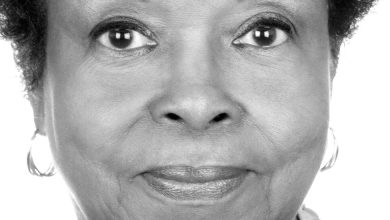Knowing When ‘They’ Means One

I have a proposal about our new usage of “they” to refer to individual people, as in, “Irene? Oh, they left an hour ago” or “Bernard cut themselves by accident.”
Because it is so hard to change language by fiat, I know that my proposal here must qualify as modest. But propose it I must: Might it make the new “they” a little easier to handle if it were used with singular tense marking?
I have often been asked by people over 35 or so, “Are we supposed to say ‘they want’ or ‘they wants’?” I always answer that the proper form is “they want,” but must it be? Instead, we could say this, which would make perfect and intuitive grammatical sense:
Singular: I want, you want, he/she/they wants
Plural: we want, you want, they want
Under the current dispensation, “they want to trim the cat’s claws” can refer to an individual or more than one person. Context usually makes the meaning known, but surely it would make things a little clearer if we could use “they wants to trim the cat’s claws” when referring to just one person.
Poor little “they” has had it rough over the years. For ages, we have been taught that it is an error to use “they” in the singular — “A person can’t help their birth” — because there is supposedly something inherently and ineradicably plural about “they.” Never mind that even Chaucer used “they” in the singular and that the example sentence I just used is from Thackeray’s “Vanity Fair.”
Thankfully, this pox on singular “they” has started to ease up over the past 20 years or so. The Oxford English Dictionary and Merriam-Webster have declared it acceptable, and in 2015, the Washington Post copy editor Bill Walsh asked, “Allowing ‘they’ for a gender-nonconforming person is a no-brainer. And once we’ve done that, why not allow it for the most awkward of those ‘he or she’ situations?”
But the acceptance of “they” in some quarters has landed it in the hot seat in others; it has been ridiculed as merely the pronominal version of wokeness or bemoaned as confusing.
Regardless, I suspect that the new “they” is with us to stay and not just because it was chosen as a word of the year by the American Dialect Society in 2015. It’s a principle in linguistics that things that settle in for good tend to start with young people, and the new “they” is used most by people under 35. (It has a mixed reception among people between 35 and 55 and is often outright dismissed by people past 55, according to a 2019 survey.)
As peculiar as many find the new “they,” it is hardly unknown among the world’s languages to use the same pronoun for “he,” “she” and “they.” In Berik, a language of Papua New Guinea, there is a pronoun for “I,” a pronoun for “we” and one pronoun for both singular and plural “you” — just as in English — and one pronoun for “he,” “she” and “they.” The new “they” actually brings English quite close to being like Berik, which some might think is kind of cool.
But Berik reached its current state eons ago via the normal step-by-step change that all languages naturally undergo, the way, for example, English turned the verb “use” into the form “used to.” Such things happen slowly, unnoticed by most speakers, if any. The new “they,” for all of its usefulness, has happened upon us quite suddenly. This means that it can be a challenge to get used to, especially for people already of age.
As language goes, pronouns are a deeply encoded reflex, generated endlessly from babyhood, with no deliberation, unlike words and expressions like “jejune” and “be that as it may.” Many of us have heard young people using the new “they” effortlessly, but for us (sorry, I mean you!) olds, it can be harder.
One reason I think “they wants” could catch on is that English speakers made an attempt to “fix” the way pronouns were used with verbs not so terribly long ago. Two hundred years isn’t that much time in the grand scheme of things, after all, and well into the 19th century, even educated people often said “you was” rather than “you were.”
Earlier English had “thou” for addressing one person, with “you” used only in the plural. (Actually, the subject form was “ye,” with “you” as the object form.) But by the 18th century, in standard English “thou” was relegated to the archaic, and “you” referred to both singular and plural. However, many speakers felt that saying “you were” to a single person — using the plural verb — was unnatural and therefore said “you was.”
“Where, sir, was you on the night of the 22nd of December, 1799?” asked a lawyer in a trial in New York City in 1800. Today we associate “you was” with colloquial speech and especially Black English. But this was a very white man in the legal profession. John and Abigail Adams also often used “you was” in their famous letters to each other. However, self-appointed grammarians, massively influential in the period, insisted that the proper form was “you were,” and thus “you was” fell out of standard use. But it was, technically, tidier than dragging in “you were” for the singular.
My proposal to treat “they” as a singular subject when conjugating the verb would be similarly handy and just plain right. I also think that it would be easy to master because using “s” at the end of the verb when referring to individuals is so deeply ingrained in the Anglophone mind.
“They wants” may feel a little odd at first or like one is doing some kind of imitation. But we can assume that “you was” felt somewhat nonstandard at first, and people got used to it. I especially like that using “s” with the new “they” would keep it from being a grammatical irregularity in terms of verbal marking.
In other words, the new “they” would be both progressive and tidy. My case rests.





